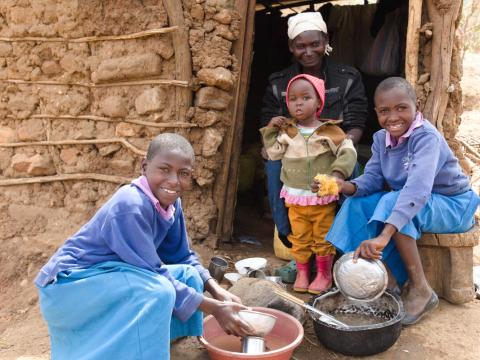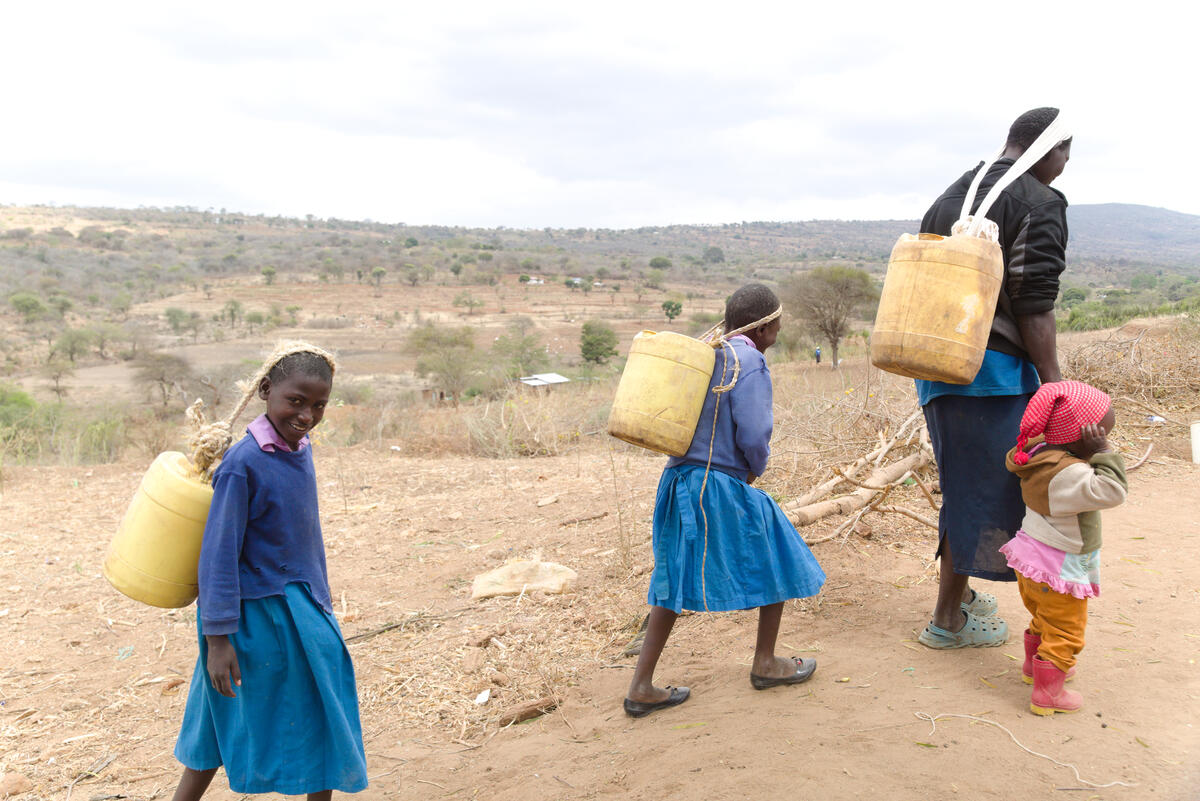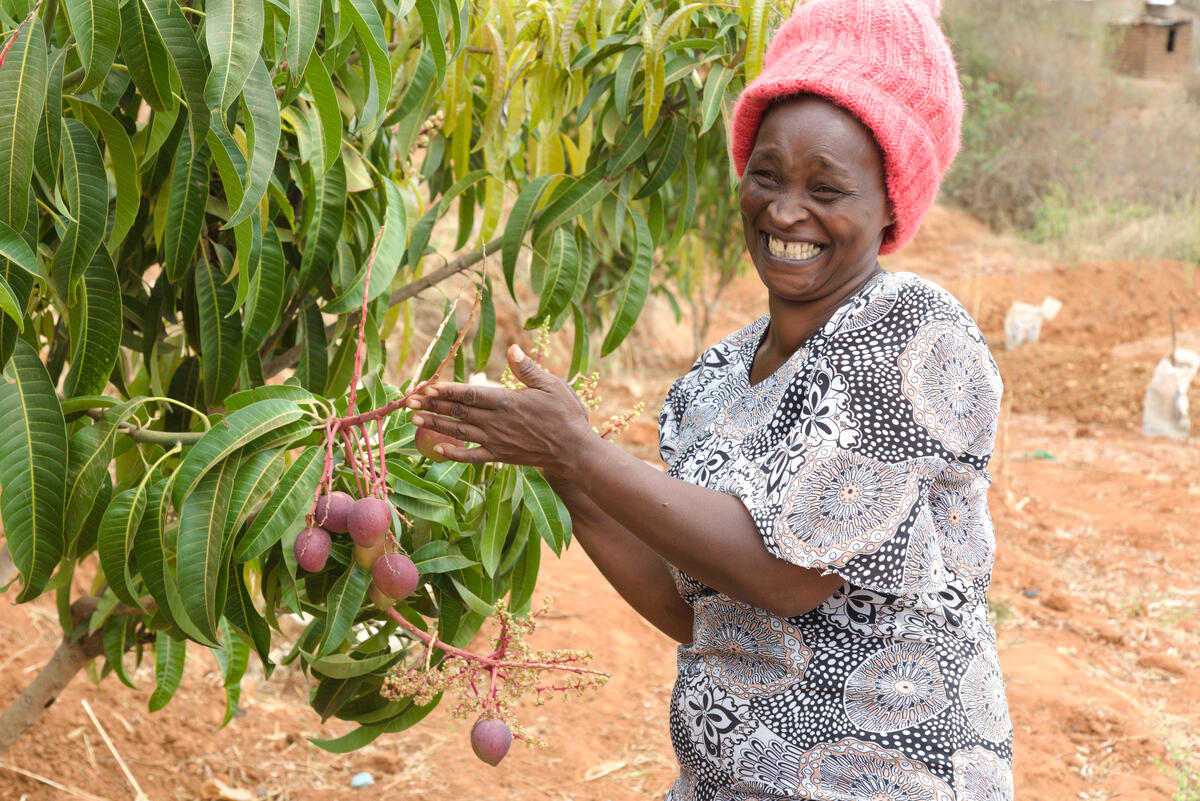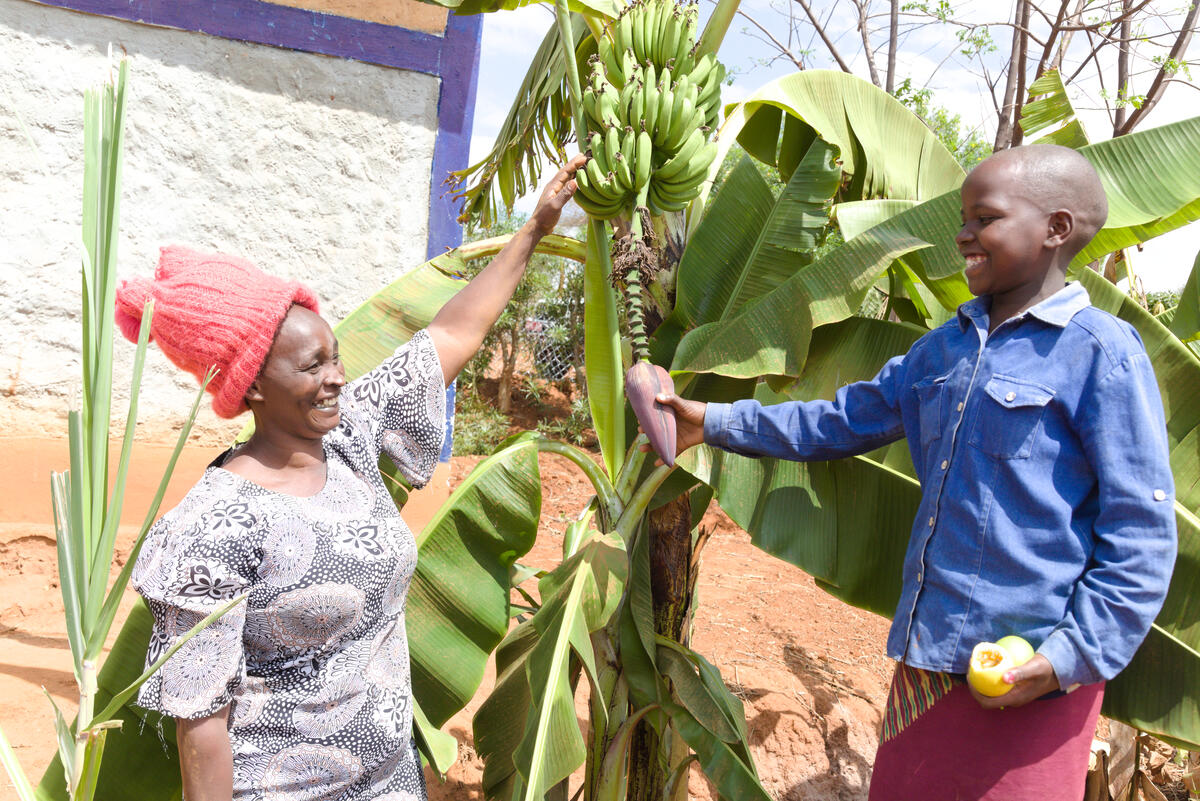When your one Christmas wish is for something to eat

December in Kenya typically coincides with the arrival of rain. It’s an exciting moment that doesn’t just represent the start of the wet season, but the promise of a good harvest and food for the year ahead. Going into Christmas, everyone can breathe a sigh of relief knowing they can celebrate the holidays.
Farmer, Anastacia, remembers those days well. “When there was rain, Christmas was good because I would cook my children a good meal,” she says. “They love chapati and green grams.”
But, for the first time in a long time, Anastacia won’t be cooking chapati and green grams for her children.

Climate change has destroyed any predictability of rainfall in her village, Muukuni. Parts of the country have been in various stages of drought since as far back as 2014 and this year has been particularly bad for Muukuni. The added burden of the pandemic has sent food prices soaring and is pushing Anastacia’s family to the edge of survival. They are among the two million Kenyans facing famine levels of hunger due to food and water shortages.
Her 12-year-old daughter, Nzilani says, “When I come home from school, I eat some boiled maize, and I only eat once, sometimes twice, a day.”
Sadly, it’s not just Muukuni or Kenya or even Africa that’s facing a hunger pandemic. In 2021, the deadly mix of climate change, conflict and the economic fallout from COVID-19 pushed 40 countries to the brink of famine and 41 million people globally are one step away from starvation.
When Anastacia’s crops failed, she turned to making rope out of sisal (a fibrous plant that grows in arid lands) she collected. “I use the money I get to buy food for my children,” she says, but it’s not enough. “I feel sad because I may not even be able to buy wheat flour and oil because they are too expensive,” she says.
In places like Muukuni, where people face the double threat of climate change and COVID-19, World Vision is working especially hard to build community resiliency for when disaster strikes. One intervention that is proving successful is climate-smart agricultural training coupled with financial skills development.

Victoria, who lives a few miles from Anastacia, joined the program earlier this year and is already reaping the benefits. Her farm is a green garden of Eden against the scorched dusty landscape of her neighbours.
“This year, Christmas will be fun because I have had a good harvest,” she says. “This is largely due to the climate smart agriculture training that I got from World Vision. In addition, I collected enough water for irrigation and fish farming after receiving a dam liner for our village water pan," she explains.

Training like this is made possible through child sponsorship. Victoria’s 12-year-old daughter Damaris is sponsored through World Vision and the funding it generates supports the community in many ways.
“Since I started these projects, life has been good for us,” says Victoria. “My children have enough to eat, I have enough money for their education and holidays like Christmas will now be fun because we shall be celebrating as a community.”
For the first time in a long time, Victoria is dreaming up a Christmas meal for her family, but millions like Anastacia cannot. It’s time to change the course of this crisis.
